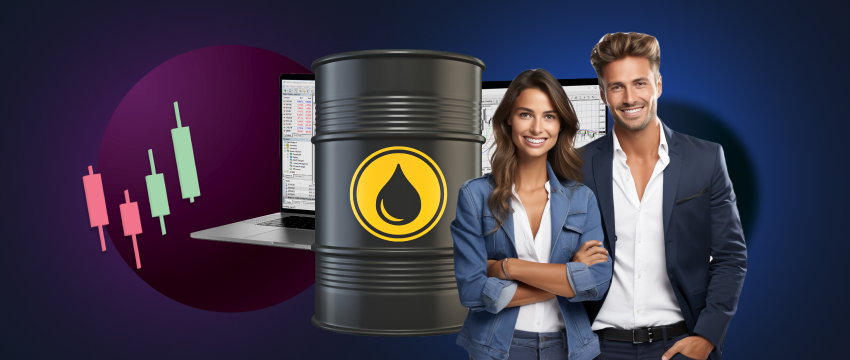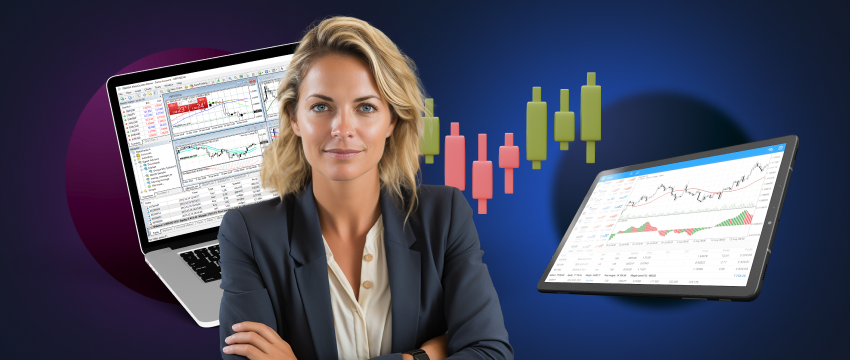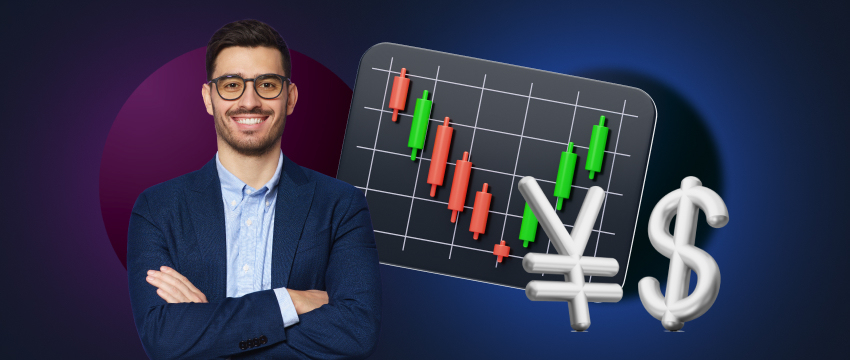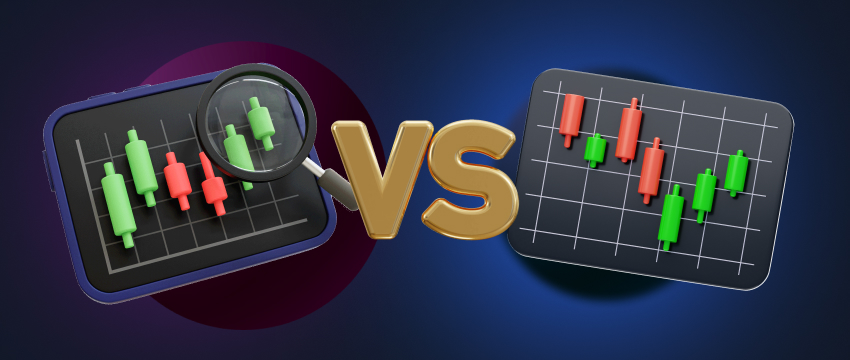Commodities trading refers to the buying and selling of raw materials or primary agricultural products. Some of the most popular include precious metals (gold, silver), industrial metals (aluminum, copper, zinc), soft commodities (coffee, sugar, cotton), grains (wheat, corn), livestock, and so forth.
Commodities trading tends to appeal to traders looking to diversify their portfolios beyond ngoại hối, cổ phiếu, chỉ số, etc. It is however important to have a proper understanding of the fundamentals of trading commodities to maximise the potential for making gains.

How are commodities categorized in trading?
Commodities are generally grouped into two distinct categories. These are:
- Hard commodities
- Soft commodities
Hard commodities
These usually refer to natural resources that must be mined or extracted. Falling under this umbrella is crude oil, natural gas, precious metals, industrial metals, rubber, etc.
Soft commodities
Soft commodities include agricultural products (wheat, corn, soybean, sugar, coffee, etc) or livestock and livestock products.

Why does someone choose to start trading with commodities?
There are many reasons why a person would opt for commodities trading. One of the most common is that this form of trading offers an opportunity for a trader to diversify their portfolio.
This approach reduces risk by diversifying investments across multiple assets. Losses in one area can be balanced by gains in another, minimizing the overall impact on your portfolio.
Diversification also allows a trader to invest in different markets and sectors, enabling them to leverage growth in various areas, while offering some protection against downturns in specific sectors or economies.
In addition to portfolio diversification, other factors attract individuals to commodities trading.
Đòn bẩy
- Đòn bẩy amplifies the potential for profits when the price of a specific commodity moves in the trader’s favor.
Shifts in the global economy
- Geopolitical uncertainties, environmental disasters, economic releases, and similar events, all have a significant impact on commodity prices. These events offer trading opportunities as they can lead to price fluctuations, allowing traders to capitalize on market volatility and possibly profit from changes in supply and demand.
Hedge against inflation
- Traders sometimes use commodities to hedge against inflation, especially during periods of rising prices, to protect their purchasing power.
Liquidity in the market
- Several commodity markets are incredibly liquid. This includes gold, oil, some agricultural products, etc. This high level of liquidity enables traders to open and close positions quickly, reducing the risk of having to hold onto unwanted trades.
Inherent value
- Commodities represent physical products/goods that are sought after and consumed by people and industries globally. This gives them inherent value as well as utility (useful, profitable or beneficial).
Spot markets and future markets
Commodities trading typically takes place on the spot markets or futures markets.
Spot market
A spot market is a type of market where commodities are bought and sold for immediate delivery.
For example, a sugar producer might sell their sugar directly to a food manufacturer at the current market price.
However, the spot market is generally not commonly utilised by retail traders due to the complexities associated with physically delivering and storing commodities.
Futures market
A futures market is one where commodities are traded through contracts that require the buyer to purchase or the seller to sell a specific quantity of the commodity at a predetermined price on a future date.
Most retail traders engage in this market by speculating on the future price movements of the commodity without the intention to take physical delivery.
Most traded commodities globally
The number of commodities to trade exceeds the hundreds. There are however some that are more popular than others, largely due to liquidity or volatility.
Among the most traded are gold, crude oil, natural gas, wheat, corn, and copper.
Factors impacting commodity prices:
- Geopolitical events and OPEC decisions (particularly in the case of crude oil)
- Economic health (gold is often considered a safe-haven asset during times of economic uncertainty)
- Weather conditions and energy demand (often the cause of gas prices fluctuating)
- Global food demand and weather patterns (influence agricultural commodities like wheat and corn)
- Construction and manufacturing (copper plays a critical role in both sectors and is closely tied to global economic growth)
Other factors influencing prices include inflation, currency fluctuations, climate changes, economic indicators, and supply and demand.
Popular trading commodities strategies
There are many approaches to trading commodities, with the most common being:
- Trend following: identifying and following trends in commodity prices.
- Range trading: identifying commodities that are trading within a defined range, buying at the support level and selling at the resistance level.
- News based trading: an attempt to capitalise on price movements triggered by breaking news, economic reports, or unanticipated supply and demand.
- Seasonal trading: leveraging seasonal trends in commodity markets (prevalent in agriculture, energy, etc)
Adopting risk management tools
Regardless of the trading approach one takes, commodities trading, like all forms of trading, comes with risk. There are ways to mitigate this risk which include setting up stop-loss orders to limit potential losses and being very cautious in your use of leverage.
Remember, while leverage has the potential to magnify your profits, it can just as quickly amplify them exponentially so knowing how to handle it effectively is vital.
Another way to reduce risk is by trading different commodities rather than investing all your capital in one commodity. Position sizing is just as important as it ensures that traders don’t overexpose their capital to a single trade. Staying informed of current affairs is also a vital risk management tool.
Seeing as commodity prices are severely impacted by geopolitical events, natural disasters, economic policies, and supply and demand fluctuations, keeping on top of the news allows traders to anticipate potential market shifts, and make more timely and informed decisions.
For example, a conflict in an oil-producing region could spike crude oil prices, while favourable weather conditions might lead to an abundant crop yield, lowering agricultural commodity prices.

Learning how to trade commodities
There are several ways that a trader can learn how to trade commodities. The internet today is an infinite source of material to help you become a more skilled trader, regardless of the type of trading you engage in.
Additionally, most reputable traders, like T4Trade, seek to offer their traders invaluable insights and information from which to learn. This commonly comes in the form of e-books, blogs, podcasts, videos, and webinars.
T4Trade also offers access to many useful tools like LiveTV, an innovative Lịch kinh tế, Trading Calculators, and Trading Psychology insights, an important component of trading.
Finallly, a trader can also choose to sign up for a demo trading account in order to gain more practical trading experience.
A demo account will also help the trader become more familiar with the trading platform (through T4Trade this would be the MetaTrader 4, arguably one of the world’s most popular trading systems).
With a demo trading account, you can also learn more about how to use technical analysis, better understand economic indicators, and discover algorithmic trading.
Trading Commodities with T4Trade
T4Trade has established a robust reputation, appealing to traders in many countries across the globe.
T4Trade ticks many of the boxes we’ve mentioned in the article in terms of regulation, reliability, learning opportunities, and more.
Other reasons that traders choose T4Trade are that it offers competitive spreads, flexible leverage, and quick and easy withdrawals and deposits.
T4Trade also provides multiple account types to choose from, meeting the demands of traders at all levels. Its nền tảng giao dịch, MT4, is user-friendly, and feature rich, offering an optimal trading experience.
T4Trade’s multilingual customer support is top-tier and on hand 24/5 to help you with any pressing trading related queries.
Furthermore, T4Trade offers access to high-end educational resources to help you become a better trader.
Khước từ trách nhiệm: This material is for general informational and educational purposes only and should not be considered investment advice or an investment recommendation. T4Trade is not responsible for any data provided by third parties referenced or hyperlinked in this communication.






